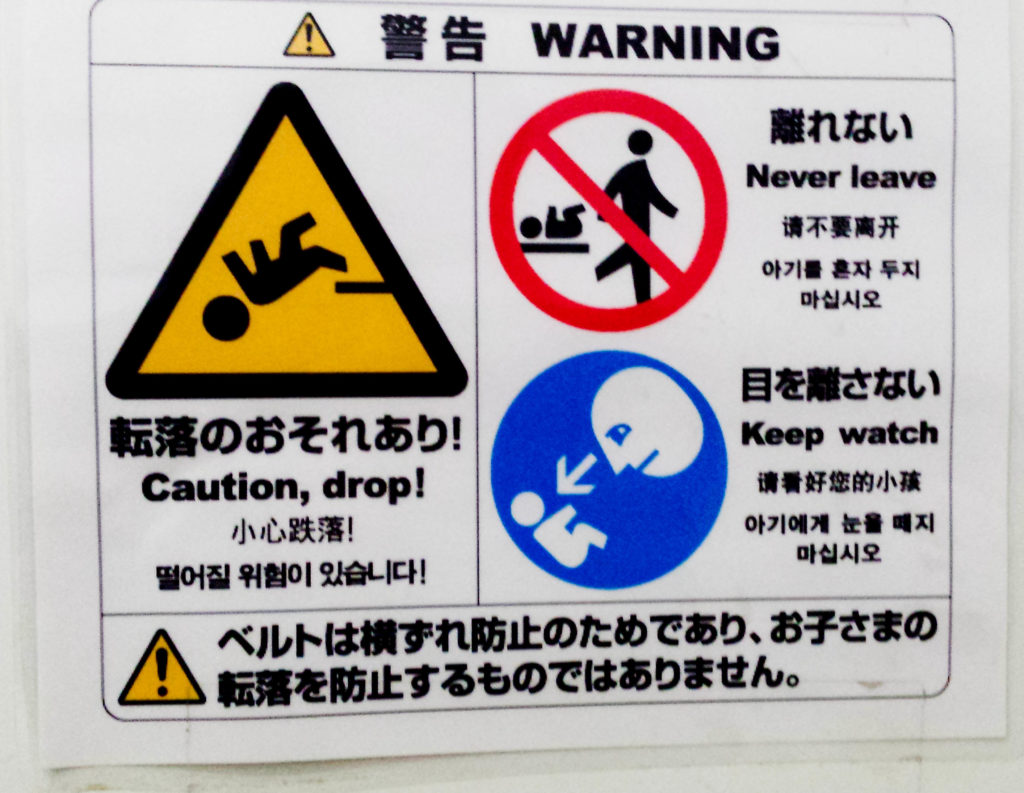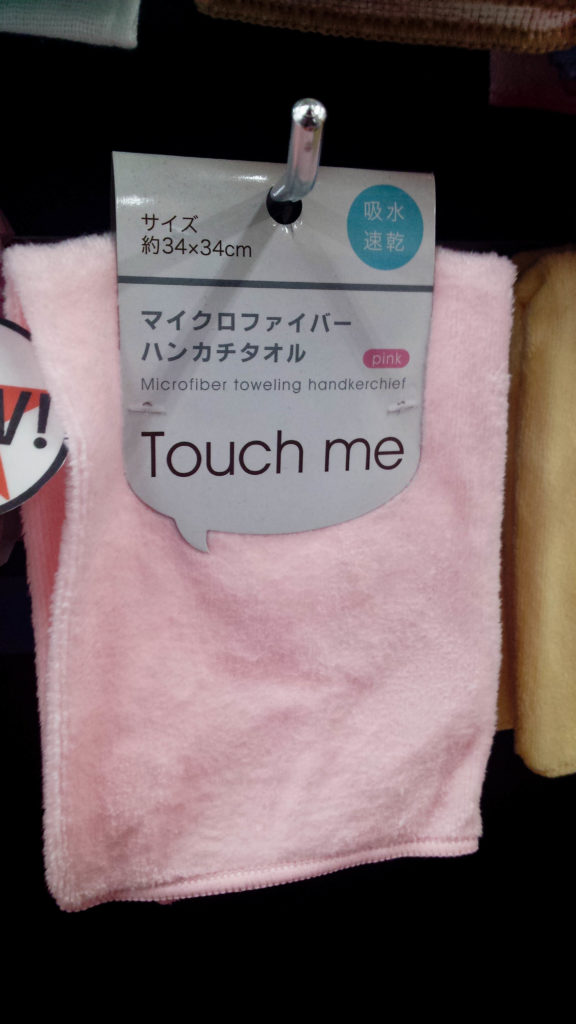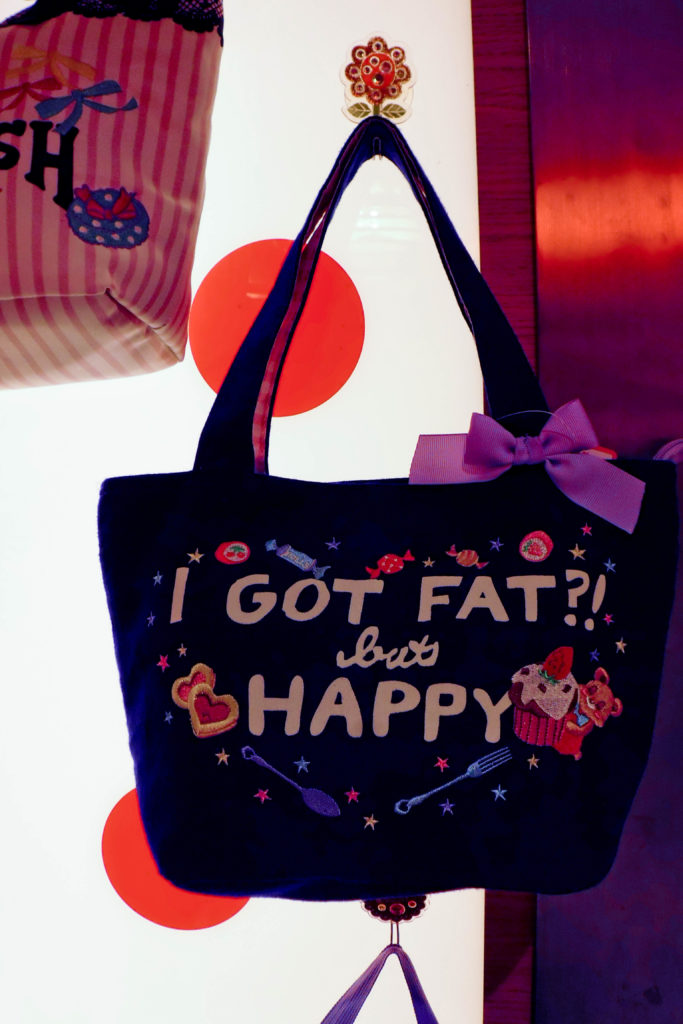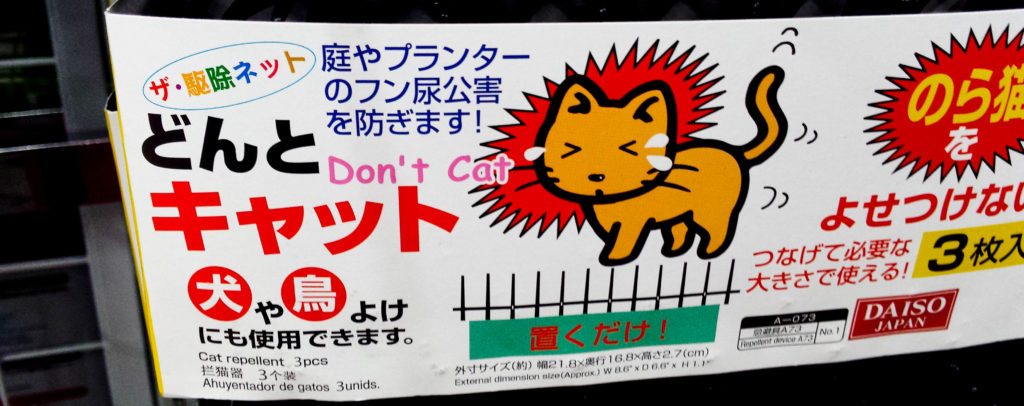It’s not a big secret that the Japanese aren’t able to speak English very well. There writing skills are not much better. They know this, but even then they have a big fascination for the English language. Therefore they try to use it all the time. This has resulted in a total new language: Japenglish!
Het Engels niveau -of het gebrek ervan- van de gemiddelde Japanner is niet direct een groot geheim. Maar op het zelfde moment zijn ze zo extreem gefascineerd door het Engels dat ze het overal proberen toe te passen. Dit heeft geresulteerd in een totaal nieuwe taal: Japanglish!
Japenglish
What is Japenglish?
Japenglish is the combination of English vocabulary and a strange Japanese grammar construction. The sentences are not always wrong, but they do not make sense, or are a bit to literally translated. This resulted in an often funny situation when foreigners discover these mistakes. (Japanese people are often not even aware of how funny/ strange this is).
This blogpost should be the first of many post of my discoveries in the last few month of these Japenglish creations. For me all these pictures where in some kind of way strange. I hope you enjoy them as much as did.
Wat is Japenglish?
Japenglish is de combinatie van Engelse woordenschat en het gebruik van rare Japanse grammatica structuren. De zinnen zijn niet altijd verkeerd, maar ze slaan vaak nergens op, of ze zijn te letterlijk vertaalt. Dit resulteert dan vaak in grappige betekenissen – of een gebrek aan betekenis-. Vak zijn de Japanners zich niet bewust van de rare/ grappige betekenis die ze op producten zetten.
Deze blogpost zou de eerste van vele moeten zijn, waar ik mijn ontdekkingen van de afgelopen maanden van deze Japenglish-creaties met jullie ga delen. Al deze foto’s waren voor mij op een bepaalde manier grappig, of sloegen zo nergens op dat ik hoop dat jullie er ook van genieten.
1) Caution, drop!
 This first picture is a warning sign that you can find in many toilet all over Japan. Woman often take there newborn with them when they visit the toilet. You can often find a special baby sit where you can put the child down. Most of the time these warnings in combination with the pictures make it a bit hilarious.
This first picture is a warning sign that you can find in many toilet all over Japan. Woman often take there newborn with them when they visit the toilet. You can often find a special baby sit where you can put the child down. Most of the time these warnings in combination with the pictures make it a bit hilarious.
Deze eerste foto is een waarschuwingsteken dat je regelmatig tegenkomt in openbaar toiletten in Japan. Japanse toiletten zijn vaak uitgerust met een soort babyzitje hierdoor nemen jonge moeders vaak hun baby mee naar het toilet. De combinatie van de tekeningen en de beperkte Engelse tekst maken deze waarschuwing een beetje hilarisch.
2) Touch me…..
 This gave me a little bit of a giggle because of a combination of circumstances. I found this interesting dust cloth in a shop around valentine. All the product around where themed as gift to give to your sweet darling. This in combination with the sentence for a dust cloth that says ‘Touch me’ maybe it’s more an invitation?
This gave me a little bit of a giggle because of a combination of circumstances. I found this interesting dust cloth in a shop around valentine. All the product around where themed as gift to give to your sweet darling. This in combination with the sentence for a dust cloth that says ‘Touch me’ maybe it’s more an invitation?
Door een combinatie van situaties moest ik een beetje lachen toen ik deze doodnormale stofdoek opmerkte. Ik heb deze ontdekking gedaan rond de periode van valentijn. Dit stofdoek hing tussen andere producten die werden aanbevolen als het perfecte cadeau voor je ‘schatje’. Dit alleen al en dan nog de ‘sensuele’ zin ‘touch me’ doet mij afvragen of dit misschien een subtiele uitnodiging is.
3) Get’s! bargain
 English is not my main language but I’m pretty sure this does not make a lot of sense. But yeah Japanese people like sales so much that they just don’t care.
English is not my main language but I’m pretty sure this does not make a lot of sense. But yeah Japanese people like sales so much that they just don’t care.
Engels is dan wel niet mijn moedertaal maar ik ben er bijna 100% zeker van dat dit niet klopt. Maar ja, Japanners zijn zo verzot op koopjes dat niets ze kan tegenhouden,
4) I got fat?!
 This one is strange in so many ways. For me the grammar does not make sense. I can also not imagine a girl who would like to walk around with a bag with this text on. Or Imagen you would receive this as a gift.
This one is strange in so many ways. For me the grammar does not make sense. I can also not imagine a girl who would like to walk around with a bag with this text on. Or Imagen you would receive this as a gift.
Deze tekst is gewoon raar/ verkeerd op zoveel manieren. De zin op zijn eigen slaagt al nergens op. Maar wie zou er nu willen rondlopen met een tas met deze tekst. Of stel je voor dat je dit als een cadeau krijgt, …. wat een compliment!
5) Don’t cat
 first of all ‘don’t cat’ makes no sense. Second, if you can read hiragana the Japanese word in front of the English ones have the same pronunciation ‘donto kyatto’ AKA ‘don’t cat’. But looking up the meaning of the ‘donto’ word confuses me even more. Because ‘donto can have the meaning of ‘drinking and vomiting’.
first of all ‘don’t cat’ makes no sense. Second, if you can read hiragana the Japanese word in front of the English ones have the same pronunciation ‘donto kyatto’ AKA ‘don’t cat’. But looking up the meaning of the ‘donto’ word confuses me even more. Because ‘donto can have the meaning of ‘drinking and vomiting’.
‘Don’t cat’ ik zou ten eerste al niet goed weten op wat dat moet slagen. Ook als je een beetje hiragana kan lezen dan zie je dat de Japanse woorden voor de Engelse tekst dezelfde uitspraak hebben ‘donto kyatto’ AKA ‘don’t cat’. Nadat ik het Japanse woord ‘donto’ heb opgezocht ben ik nog meer verward. De betekenis van het Japanse ‘donto’ betekend ‘drinken en overgeven’.
What do you think?
These where my first discoveries that I wanted to share with you all. What do you think of them? If you have remarks, suggestions, or questions you can always post them in the comments section, on my Facebook page, Google+ page or through Twitter.
Wat vond je ervan?
Dit waren mijn eerste ontdekkingen die ik wilden delen met jullie. Wat vond je ervan? Heb je opmerkingen, suggesties of vragen dan kan je ze altijd in de ‘comments section’ plaatsen, of op mijn facebookpagina, google+ pagina of via Twitter.